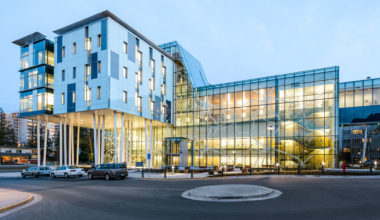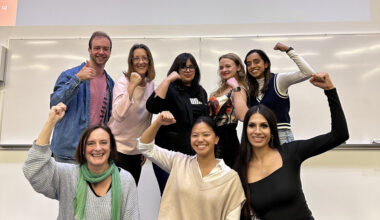More than 1500 psychiatrists, clinician-investigators, basic scientists, leading interational experts in biological psychiatry, and a Nobel laureate will meet in Vancouver in June, bringing diverse international perspectives to a collective exploration on the theme of “Neuroscience Discoveries and Translation to Clinical Practice.”
This year’s World Congress of Biological Psychiatry, a biennial conference of the World Federation of the Societies of Biological Psychiatry (WFSBP), is an opportunity for local researchers at every career level to address challenges in the pace of discovery in biological psychiatry and neuroscience, and in applying those discoveries to patient care.
“There will be something for everyone,” said Dr. Lakshmi Yatham (pictured above), current President-Elect of the WFSBP and Head of the Department of Psychiatry at the University of Britsh Columbia. Following the Congress, Dr. Yatham will take over as President, serving in the role until the conclusion of the Congress in 2023.
“We’re particularly proud of the caliber of speakers, and the scope of the issues to be addressed and debated,” said Dr. Yatham. “There will be more than 65 symposia on topics ranging from the neurobiology of addiction to biomarkers for schizophrenia, from technology and big data to stem cells and psychiatric drugs, to sex differences in depression to mental illness in pregnancy. We’re also very excited to debate topics such as the influence of gut microbes on psychiatric disorders, and the health consequences of cannabis legalization.”
A particular highlight will be a plenary presentation from Dr. Elizabeth Blackburn, former President of the Salk Institute for Biological Studies and recipient of the Nobel Prize in Physiology and or Medicine in 2009 for her role in the discovery of how chromosomes are protected by telomeres and the enzyme telomerase. Telomeres are protective structures on the ends of individual chromosomes that prevent chromosome deterioration and fusion resulting in cell death; Dr. Blackburn will present a talk titled “Telomeres: What they do – and don’t – tell us.”
The University of British Columbia and the Djavad Mowafaghian Centre for Brain Health will be well-represented at this year’s congress; the local organizing committee chair is Dr. Raymond Lam, Professor & Head of Clinical Neuroscience in the Department of Psychiatry at UBC and Director of the UBC Mood Disorders Clinic. Dr. Liisa Galea, Director of the Graduate Program in Neuroscience and Professor in the Department of Psychology, is a member of the local organizing committee and a presenter and the chair of a symposium.
“This is an incredible time for our field, as we believe that biological psychiatry is where we will see the advances that will lead us to better treatments for psychiatric illnesses,” said Dr. Yatham.
With the future in mind, the Congress has also supported more than 30 trainees to attend this year; there will also be poster presentations to promote current research, and networking and educational opportunities for students, postdocs and early career investigators.
The 14th World Congress of Biological Psychiatry will take place from June 2 to 6, 2019, at the Vancouver Convention Centre. For more information on the Congress or to register to attend, visit www.wfsbp-congress.org/home or www.wfsbp.org


